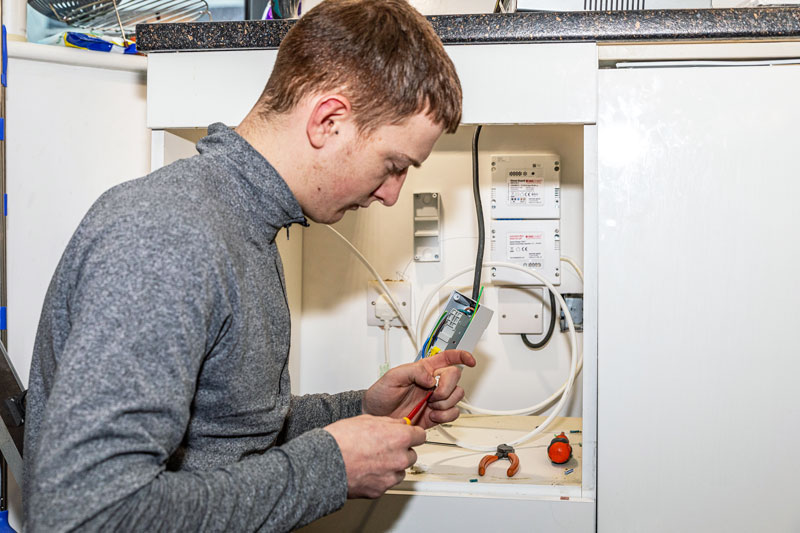
Across the UK, fire and rescue services respond to approximately 35,000 house fires annually, with a significant proportion occurring within student accommodation. These statistics from fire brigades also highlight a troubling statistic: on average, 28 fires a day are started by cooking appliances, making the kitchen the most high-risk area of any living accommodation, concerning fire safety. This data also emphasises the urgent need for awareness and preventative measures in student living spaces.
What are the specific challenges with student accommodation?
Student accommodation presents a unique challenge. Most students are living independently for the first time and are unlikely to fully grasp the importance of fire safety. This oversight, combined with the many distractions of student life, significantly increases the risk of cooking-related incidents. The fact is that people living in rented or shared accommodation are seven times more likely to experience a fire, which reinforces this risk, especially since it's clear that most fires in student settings originate from the kitchen.
Fire services are using campaigns like Student Fire Safety Week to talk to students about fire safety awareness in the kitchen, with one fire service pointing out that a significant number of cooking fires start due to distractions or negligence while cooking. Fire safety education is essential to introduce greater fire safety awareness among student populations, however, there is also a clear need for solutions to be implemented in building design to reduce the fire risk to residents.

The Role of the Firechief® Kitchen Stove Guard
The Firechief® Kitchen Stove Guard offers an effective solution to help manage cooking risks in student accommodation. Designed to address the primary causes of kitchen fires, the Stove Guard intelligently monitors cooking temperatures, cutting off the power supply to the stove ahead of a dangerous cooking situation and before a fire can start. The Stove Guard requires no maintenance and boasts a 10-year battery life, giving facility managers both convenience and long-term reliability.
Additionally, the impact of implementing the Stove Guard extends beyond fire prevention. By averting potential cooking fires the Stove Guard reduces the likelihood of fire brigade callouts and the associated disruptions they bring, both for students and accommodation managers. For facility managers overseeing Purpose Built Student Accommodation (PBSA), this means fewer operational headaches, and greater protection for the premises, as well as the residents.

The Firechief® Stove Guard provides a more proactive approach to fire safety management in student accommodation. By integrating this solution, facility managers can mitigate the risks of cooking fires, providing a safer living environment for students.
Useful Information
See how Downing Students implemented the Stove Guard in the Vega building in London
Check out the Firechief® Stove Guard

